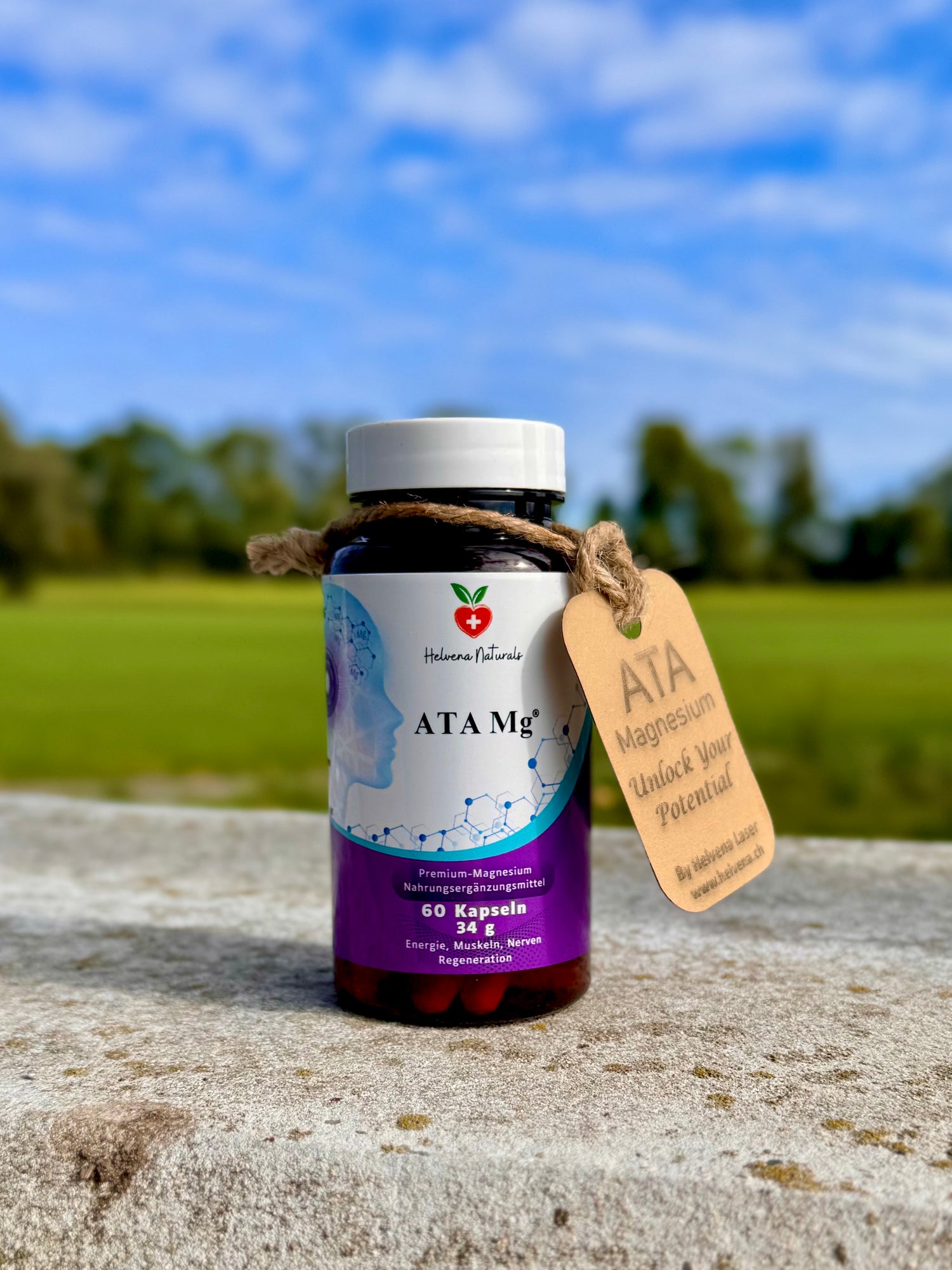The Science Behind ATA Magnesium
🧬 ATA Mg®
Magnesium acetyltaurinate is an innovative compound engineered to optimize magnesium delivery directly to the brain. Unlike standard forms of magnesium, ATA Mg® crosses the blood-brain barrier thanks to its lipophilic structure and neuroactive design.

🔬 How It Works
Acetyltaurinate Structure:
ATA Mg® is a conjugate of magnesium and acetyltaurine – a molecule structurally close to neurotransmitters such as glutamate and kainate. This allows effective absorption and targeted action within neural tissue.
Crosses the Blood-Brain Barrier (BBB):
Due to its lipophilic nature, ATA Mg® successfully bypasses traditional magnesium absorption limitations, reaching neurons, astrocytes, and microglial cells in the central nervous system.
Neuroprotective Mechanism:
ATA Mg® promotes synaptic stability and reduces excitotoxicity, making it suitable for use in neuroinflammation, trauma recovery, and neurodegenerative conditions.

⚙️ Technical Benefits
Enhanced Bioavailability:
Studies indicate that ATA Mg® delivers up to 50% higher intestinal absorption compared to traditional salts like magnesium oxide or citrate.
Central Nervous System Targeting:
The compound’s unique configuration allows for a direct effect on neurotransmission, mental clarity, and emotional regulation.
Synergistic Action:
The combination of magnesium and taurine supports neural membrane stabilization, cortisol regulation, and oxidative stress resistance.

🧠 Scientific Applications
ATA Mg® is currently being explored or used in contexts such as:
Cognitive decline and aging
Migraine and tension-type headaches
Stress-related disorders
Epilepsy and seizure prevention
Post-concussion recovery and emotional rehabilitation

🔍 Scientific Recognition
ATA Mg® has been the subject of multiple pharmacokinetic and neurochemical studies demonstrating its superior absorption profile and clinical potential. It is considered a next-generation neuro-magnesium, developed by Synapharm Laboratories in collaboration with European neuroscientists.





